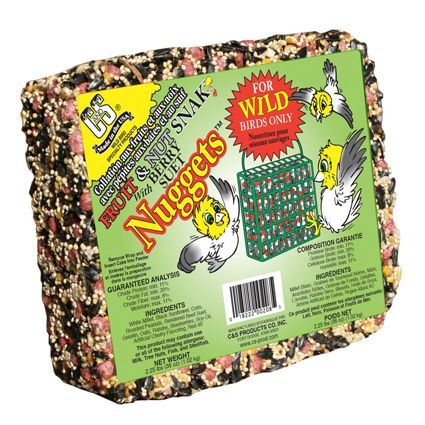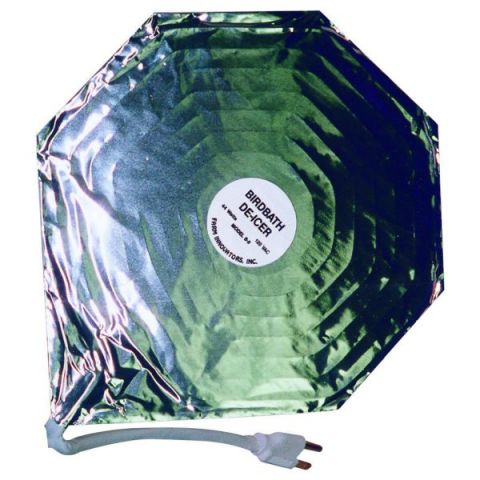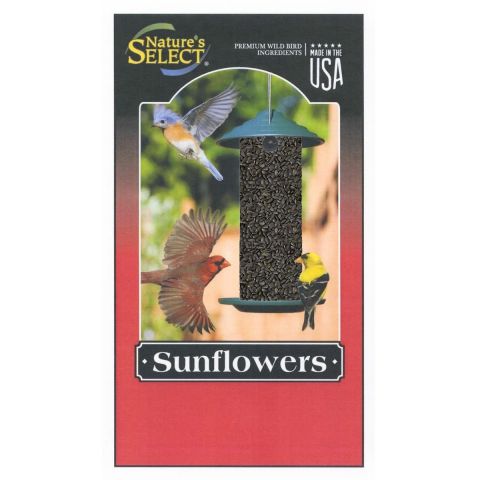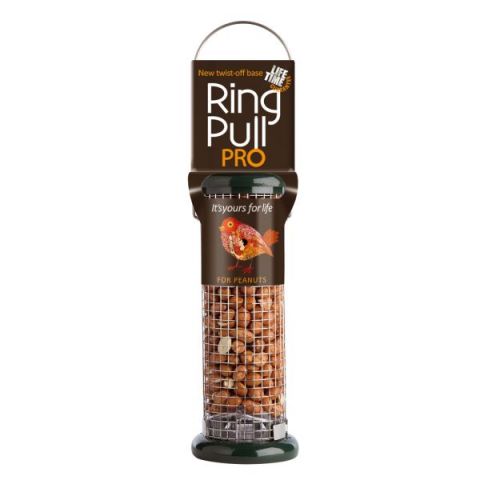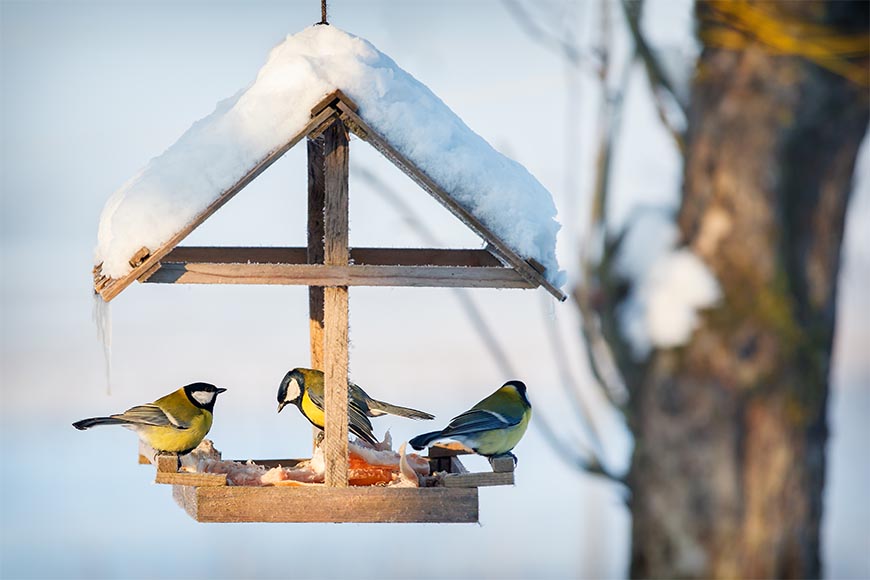
Let’s talk about winter preparations for backyard birds.
The three most important things to consider for the health and safety of backyard birds in the winter months are
- Food
- Water
- Shelter
Backyard Bird Winter Feed and Bird Feeder Care
- Winter feeder care
Clean and repair all bird feeders, checking for broken perches, clogged feeding ports, and other problems. The seasonal change gives us good reason to do some necessary maintenance.
.
Repairing feeders is of importance going into winter, ESPECIALLY important where there are heavy snowfalls. The extra weight of the snow can collect on feeders, putting added stress on hangers and perches
- Feeder cleanliness
Clean your feeders often, it's especially important going into winter. Just as we can get ill, so do birds. With so many birds feeding at one location disease can spread easily and quickly. We all know that winter is not an enjoyable time to be ill, especially if the weather is cold and resources are limited.
So, take that extra time to clean your feeders
Clean the ground beneath feeders and consider adding protective coverings or platforms to catch spilled seed. Spilled seeds can attract unwanted guests such as voles and help their population increase, which can be detrimental to your future garden.
Move feeders closer to a patio or door so they will be easier to refill even in the harshest weather. I use platform feeders in the winter located near the porch or attached to the ledge of the deck. Making it easy for the birds to access and enjoyable to watch from the door.
Checking, cleaning, and adding feed is a morning routine, along with my coffee, which I enjoy in winter. Going out after a snowy night to clean off feeders and adding some black oil sunflower seeds, peanuts, and mealworms each morning is a great way to get moving in the morning.
- Backyard Bird Feeder protection
Adding covers to feeders will help keep seed dry and prevent snow and ice from accumulating on the feeders. Once seeds become frozen in snow and ice it takes more work for the birds to pick seed out, plus increases the chance of rotting.
Change the foods offered to preferred winter bird foods that offer high energy nutrition for backyard birds. These feeds can be sunflowers, either black oil sunflowers or striped sunflower seeds, along with peanuts, and mealworms. Peanuts are high in fats, and mealworms add protein to their diets.
4. Nutritious Winter Feeds
Providing high nutritious feeds to backyard birds is a great start to keeping them around. Different birds have different feeding requirements and these requirements change depending on the season. The diet of many birds will change from summer to winter.
During winter Calories and fats are very important for backyard birds. Having bird food high in these such as peanuts, peanut butter, black oil sunflower seeds, Nyjer seed, millet, and dried fruits to extra nutrients.
Chickadees eat up to 80% of insects in summer still search out up to 50% of insects in the winter. Many of these insects are tucked into the cracks and bark of trees, as well as old frozen eggs and other bits they can find. Adding mealworms to the feeders is a great way to help them have easier access to a high protein meal.
Another option, Suet is one of the best foods to offer birds for that high fat and high energy food need. This high-energy, high-fat feed, is superb winter food. It is available in many different blends with ingredients to tempt different species of birds.
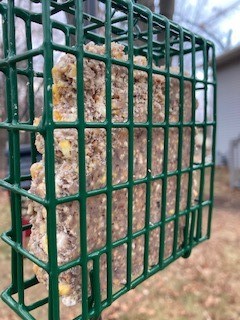
Suet is a sure way to attract any woodpeckers into your yard during the winter, as well as chickadees, nuthatches, titmice, and others. I love to watch the Downy Woodpeckers swoop from tree to suet feeder and back.
Suet can be offered in a variety of ways from solo hanging baskets, double baskets, upside down suet feeders, tube suet feeders, as well as feeder suet combos. Suet also comes in different sizes and shapes ranging from small squares to large logs or even giant “party” blocks.
Make sure to have the right suet for the feeders you have. I find myself stocking up on suet as winter approaches.
Backyard Bird Winter Water Needs
Running water and birdbaths (no matter the season) is one of the best ways to attract birds to your yard.
True for Spring, summer, fall, and especially winter. During these cold winter months, hydration is especially important to birds, as many lakes, rivers, and streams freeze over. The summer rain puddles also vanish during the winter months.
Setting up a winter birdbath is a way to make your yard stand out for your backyard friends. If you do not have a birdbath or winter setup for your birdbath, I highly recommend investing in one, and going into winter is a great time to check on the birdbaths.
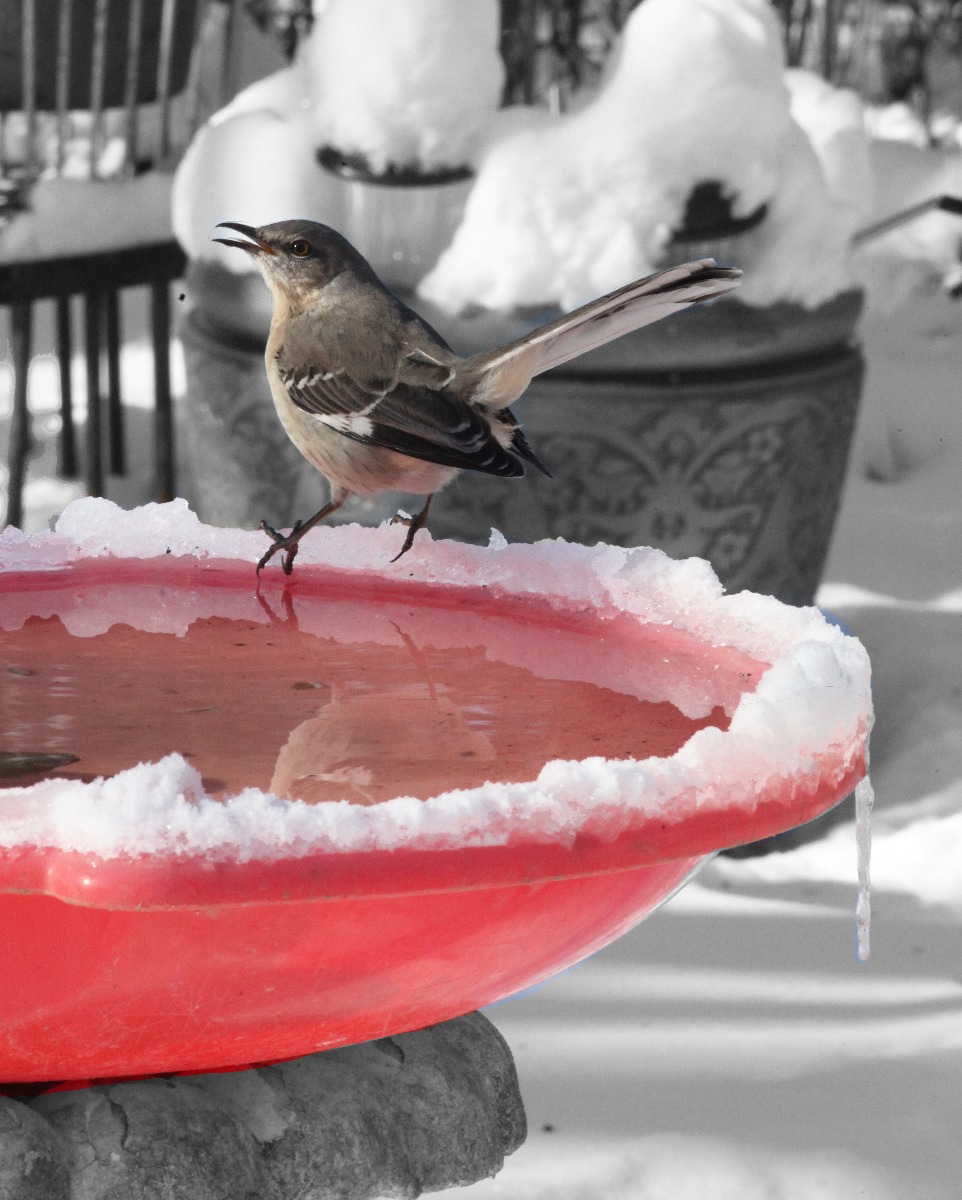
Start by Cleaning and sterilize all baths, including rims and pedestals, which also allows you the opportunity to check each one for leaks or damage. Like bird feeders, bird baths can spread disease. Its important to check these often for cleanliness
Adding a heater to sturdy birdbaths or swap out summer birdbaths for winter heated models is highly recommended. Position the birdbath in a sheltered, safe area where it will still be visible to backyard birds.
Add small stones to keep the water shallow and prevent birds from bathing when the water is too cold. Protect electrical cords and outlets with adequate wraps or covers to secure for a long, wet winter. Rabbits and other rodents have often chewed on electrical cords, so keep an eye out and try to keep them from damage.
Backyard Bird Shelter
There are two ways to provide winter shelter for backyard birds; roost boxes and tree cover. The shelter is very important to backyard bids during the long, cold, and snowy nights of winter. As temperatures drop, many of the trees have dropped their leaves during fall and leave limited cover. Having the right trees in your landscape helps give them shelter
- Best winter trees for backyard birds
Having Evergreen trees and bushes in your landscape will provide some of the best protection for backyard birds. My favorite trees for winter shelter are conifers. Most conifers can give winter birds a sanctuary from heavy winds, deep snow, and other elements over the winter.
Choosing Trees and shrubs such as
- Arbor vitaes
- Red Cedars
- Spruces
- yews
- pine trees
These trees will provide extra cover in the winter where deciduous trees lack, and give decent to great protection from winter elements. Many of these trees and shrubs have evolved to withstand heavy snow, dropping the snow off to the side. These trees may hold some snow providing extra shelter from the cold winds.
- Providing Winter Boxes for backyard birds
Another great option to help provide shelter during the winter months is by using roost boxes. These boxes are made a little different than nesting boxes. These boxes can be around the same size or larger than nest boxes. They are great places for birds to take shelter from the winter elements.
When you add backyard shelters, don't expect the backyard birds to show up to the vacancy on day one. Birds are creatures of habit; they will test new things to checking for safety. Putting these roost boxes up late in summer or fall helps our little friends become familiar with the new roost boxes.
If it's already winter and you don’t have a roost box, don’t let that stop you from putting one up. This is a great offering you are making to your backyard birds. Offering these roost boxes is always better later than never.
Winter backyard bird recap
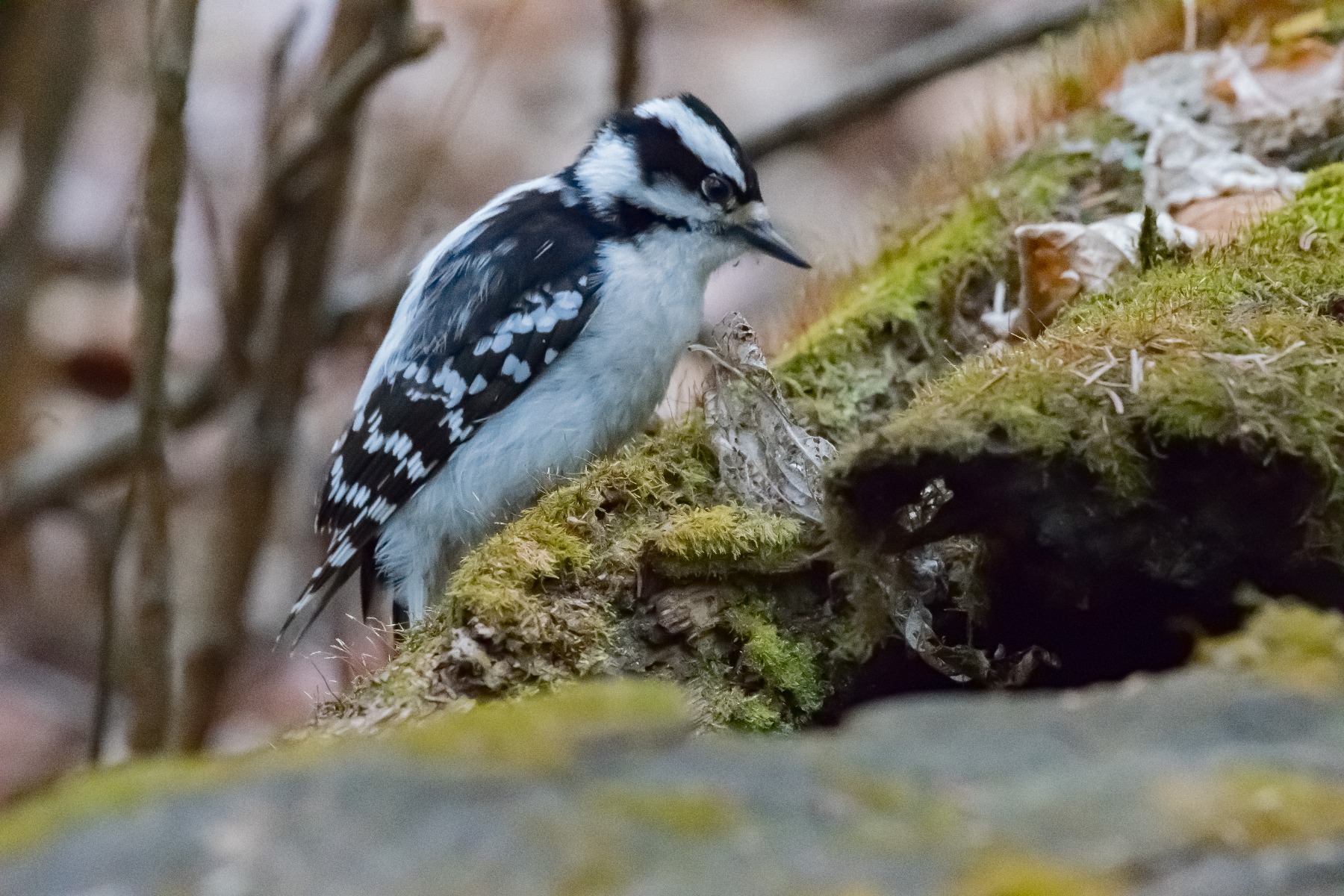
Overall, the best thing you can do to help birds get through the winter is to keep your feeder full. Often birds will depend on your food supply, especially if you are the only feeder in the neighborhood. A small group of birds can quickly abandon a feeder site if feeders are consistently empty. They will depend on a constant feed supply to keep their calorie count high, helping with body heat and overall health through the winter
Birds also need water throughout the year, and as the seasons change rivers and lakes begin to freeze up, backyard birds lose these reliable summer drinking spots. The same is true of small puddles and other water features that disappear in the winter. Solve this issue with a heated birdbath or another source of water that stays drinkable all winter.
Lastly, backyard birds need shelter from the cold elements during the winter. Providing them with roost boxes is a great option, and these boxes come in various shapes sizes. Another great option is to plant trees and bushes that provide shelter from the elements. Some of the best are conifers such as the Arborvitaes and Cedars.

